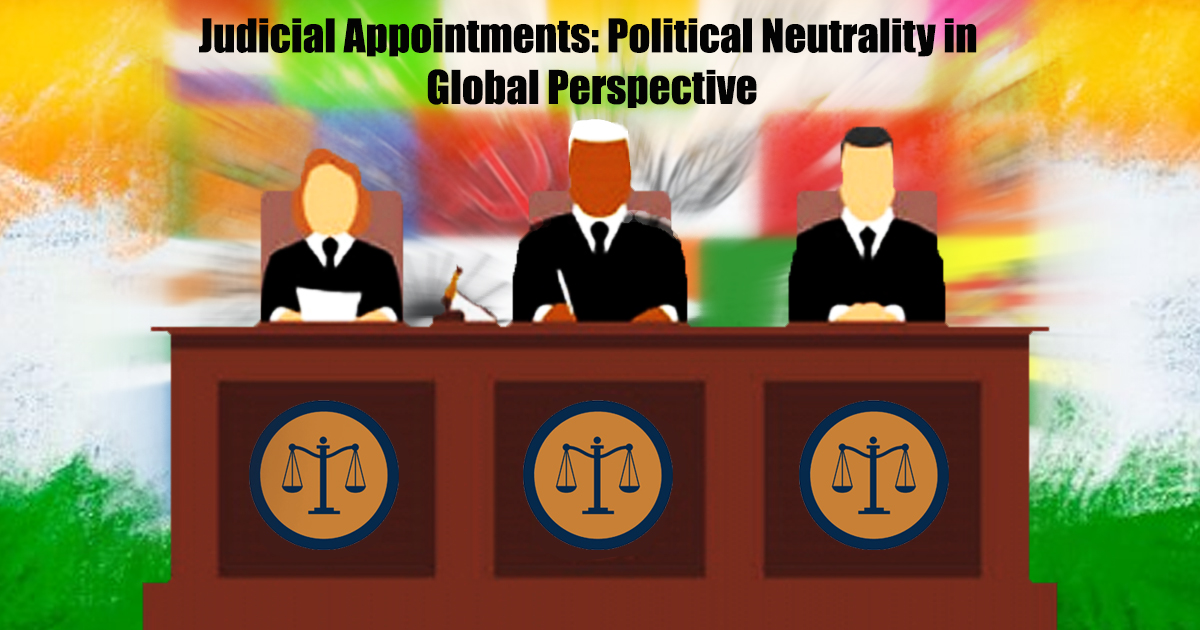GS Paper 2 :
Mains: Issues with Collegium system, Global Examples of appointing Judges
Recently, a retiring Calcutta High Court judge revealed that he has always been a member of the Rashtriya Swayamsevak Sangh (RSS).
Timeline for changes in Political Ideology in Judicial Appointments in India
Historical Context
Pre-1970s:
Political ideology was not a major factor in judicial appointments.
Shift in Appointment Practices After 1970:
This practice shifted when Indira Gandhi’s government faced Supreme Court setbacks in key cases (Golak Nath, bank nationalization, privy purses).
This setback forced Ministers to start arguing for considering ideology in Supreme Court appointments.
Impact on Justice M N Chandurkar: Despite qualifications, his elevation to Supreme Court was blocked.
Reasons for Disapproval:
Attendance of RSS leader’s funeral and positive remarks about the leader.
The Collegium System:
Since the 1990s, judicial appointments have been made through the Collegium system where judges appoint judges.
This system presumes judicial neutrality and expects judges to avoid overt political affiliations.
Controversial Judicial Appointment:
Last February, controversy surrounded the appointment of lawyer Lekshmana Chandra Victoria Gowri as an additional judge of the Madras High Court.
Despite objections from 21 Madras High Court lawyers over alleged hate speech, the Supreme Court Bench dismissed the petition, stating that suitability should not be evaluated by courts.
Global Examples of Appointing Judges:
United Kingdom
Merit-Based Judicial Selection: Judges in the United Kingdom are selected by a process that prioritises merit and experience over political affiliation.
The system relies on senior members of the judiciary and others who are acquainted with the judiciary to choose judges, whose “selection must be on merit.
Judicial Impartiality: UK judges with strong views on case-related topics due to public statements should consider recusal. Engaging in controversial or political discussions poses a risk to impartiality.
Political Neutrality of UK Judges: Judges in the UK are expected to avoid any appearance of political ties, e.g., by attending political gatherings, political fundraising events, contributing to political parties, or speaking at political fora.
They are also expected to not participate in public demonstrations which would associate them with a political cause, diminish their authority, and cast doubt on their independence
Judges are prohibited from running for Parliament under the House of Commons (Disqualification) Act, 1975.
United States of America
Political Influence on US Judicial Appointments: The American system places judicial appointments in the hands of politicians.
The President appoints judges to the higher judiciary, and the appointments are confirmed by the United States Senate in what is most often a partisan vote.
US judges serve for life, and have well known political positions that may be conservative or liberal.
Restrictions on Political Activity:
Canon 5C of the American Bar Association Model Code of Judicial Conduct, 1990 prohibits judges from engaging in political activity except “on behalf of measures to improve the law, the legal system or the administration of justice
Canon 4 of the 2007 model code provides that a judge “shall not engage in political activity that is inconsistent with the independence, integrity, or impartiality of the judiciary”.
It does not include an express exception for political activity related to the administration of justice.
Singapore
Foundational Principles: The Singapore Supreme Court’s Judicial Code of Conduct says that its legal system is founded upon the cardinal principle “that an independent and competent judiciary must interpret and apply the laws of the country and do justice without any fear or favour, affection or ill-will to the best of its ability.”
Judicial Independence: Judges should conscientiously ensure that the level of their associations with members of the Legislature and/or the Executive, if any, do not give rise to any doubts about their independence or any unintended appearance that the Judiciary may be beholden to others in any way by such associations
No Political Affiliation: Judges should not be members of clubs or associations having “any real or ostensible links with any political party”, and should not hear cases where there could be a public perception of their lack of impartiality because of their spouses’ or immediate family member’s political activity or affiliation
Australia
Political Neutrality: The Australian Guide to Judicial Conduct requires judges to sever all ties with political parties upon appointment, although prior affiliation isn’t automatically considered bias.
Giving the appearance of continuing ties by attending political gatherings, political fundraising events, or through contributions to a political party should be avoided.
Disqualification of a Judge: Publicly expressed biases can disqualify a judge. Their known strong opinions on relevant topics may necessitate addressing possible disqualification, regardless of whether parties raise the issue.
Conclusion :
Understanding these global practices underscores the importance of maintaining judicial independence and impartiality, essential for upholding the rule of law and public trust in the judiciary.
 Chinmaya IAS Academy – Current Affairs Chinmaya IAS Academy – Current Affairs
Chinmaya IAS Academy – Current Affairs Chinmaya IAS Academy – Current Affairs

